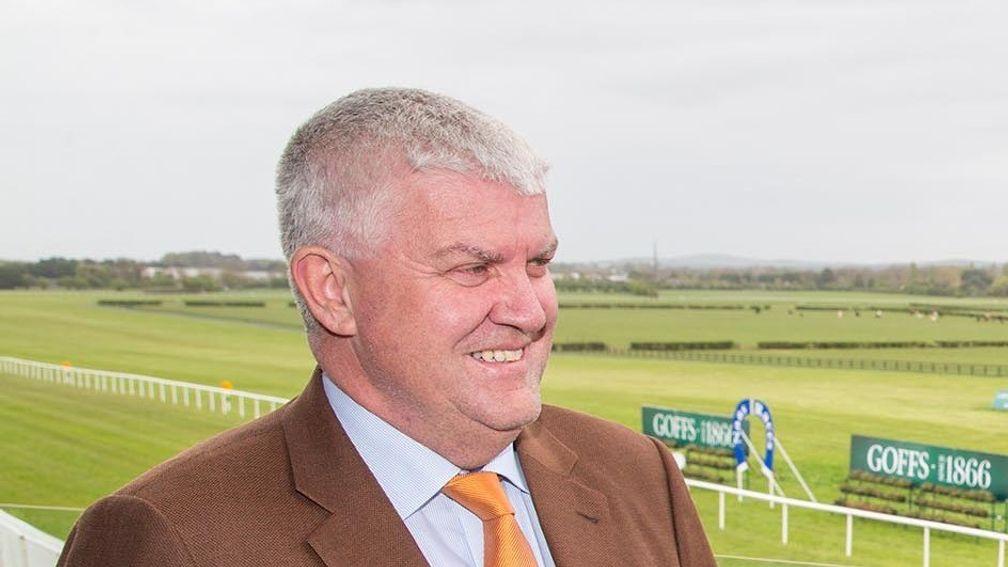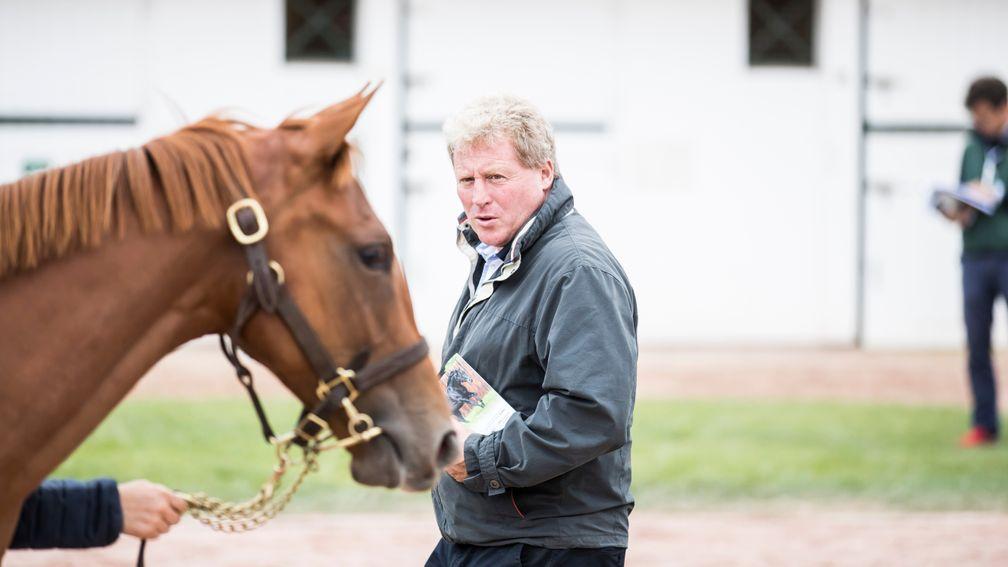Brussels atmosphere described as 'charged' as Cantillon calls for new body

When Sasha Kerins mounted the podium to discuss the various strands of tax implications for the breeding industry, she quipped that she’d had the back door of the function room in Lyrath Estate locked to stop people leaving.
She needn’t have worried, for she had a captive audience of around 400 defined by a unanimous urgency to react expediently at a perilous time for the Irish breeding community.
Kerins, a tax analyst with Grant Thornton Ireland accountants, made her subject engaging to a packed auditorium by breaking it down into relatable issues such as what defines a hobby trader or a commercial operator. Her contribution was one of three brief presentations that kicked off the 2019 Irish Thoroughbred Breeders’ Association annual seminar.
John Lynam, a bloodstock analyst, evaluated the manner in which the 2018 yearling sales had shown alarming contractions, and Michael Treacy, the ITBA’s EU consultant, summarised the lengths to which the representative body is lobbying in Brussels to ensure breeders’ needs are to the fore given the imminent ramifications of Brexit.
He began by paraphrasing the contentious line by the EU Council president Donald Tusk that there is “a special place in hell” for those who promoted Brexit without a plan for how it would be delivered.
He suggested there was a prevailing school of thought that Tusk could have spoken in even stronger terms and described the climate in Brussels right now as “charged”.
However, he stressed of the efforts to agree a deal that will satisfy the British government: “Despite the best efforts of the United Kingdom to divide and conquer, we have so far maintained the discipline within the EU 27 [countries], and that looks very likely to hold in the ongoing discussions.
"Britain has only looked at Westminster and the issues within Britain, but a vote will have to take place in the European parliament as well, and there is a certain amount of animosity within the European parliament for the way the British have handled negotiations.”
Tara Stud's Derek Iceton, who chaired the subsequent panel discussion that was rooted in the ambition to improve the lot of the breeder, added that there will be “no silver bullet”.
Leading breeze-up consignor Con Marnane reckoned he was down 50 or 60 per cent in numbers this year following last year’s challenging trade.
He proposed an initiative that would see a series of races that would reward owners with a bonus of a €10,000 sales voucher that would expire if it wasn’t used the following year, and also floated the idea of pubs being allowed to take bets over the counter.

International claiming race policies were broached as a stimulus for the middle and lower tiers, an area Sky Racing commentator and breeder Kevin Blake also honed in on.
Having compiled statistical analysis that suggested 87 per cent of Flat foals offered last autumn sold at a loss to their breeders, Blake mused: “The economy in general has been on the up and we’re being told about the Celtic Phoenix, but the bottom of our market is at a place it hasn’t been since 2009.”
Polarisation vexed the panel, and Blake felt that incentivising breeders to get involved as end users or owners, noting that demand has never been higher for proven stock, is an area that needs targeting.
“It’s not overproduction or stallion fees that is the problem, it’s a lack of end users. What we have in this country is under-demand. Trainers in Britain and Ireland and the authorities are crying out for more horses and runners – they cannot fill races. We have the horses to fill that demand, the problem is we don’t have enough people that will buy a yearling and put it in training.”
Brian Kavanagh, HRI’s chief executive, countered that the value of horses-in-training was at a peak because of the existing programme, while one of the more radical concepts was floated by Tinnakill Stud’s Dermot Cantillon.
Cantillon suggested that HRI is restricted in its capacity to agitate for change as it is compromised by the fact that it is a subsidiary of the department of agriculture.
“I feel the industry should come together and form a new body, with a good chief executive who can lobby and say what needs to be said,” he proposed. “We also need a point-person in government, a junior minister for racing, same as they have for the forestry and fishery sectors, someone who can lobby the minister on racing’s behalf. We don't have the racing-friendly TDs we used to have and we need to make them listen.”
On an afternoon that crystallised just how close and steep the Brexit precipice is, it was the sort of robust contribution that was welcomed by attendees. No one left early, and the ITBA’s chief executive Shane O’Dwyer resolved to formulate an action plan forthwith. He won’t be short of material.
If you enjoyed reading this, you might also like...
Red hot Chile papa: why Daddy Long Legs was snapped up for Kentucky
Juddmonte replicate Frankel mating as 2019 plans are revealed
Nerves evaporate for Jerry Horan as he takes to Goffs rostrum
Published on inNews
Last updated
- Breeding right to Blue Point sells for €430,000 on Darley winning bid platform
- Classic hero Metropolitan set for strong home support with Etreham busy at the sales
- 'It has been nothing short of incredible' - Grace Hamilton on Godolphin Flying Start experience
- ‘She’s one of the best two-year-olds in Europe’ - bluebloods set to go down a storm at Arqana Breeding Stock Sale
- HRI announces academy hurdles for unraced three-year-olds starting next season
- Breeding right to Blue Point sells for €430,000 on Darley winning bid platform
- Classic hero Metropolitan set for strong home support with Etreham busy at the sales
- 'It has been nothing short of incredible' - Grace Hamilton on Godolphin Flying Start experience
- ‘She’s one of the best two-year-olds in Europe’ - bluebloods set to go down a storm at Arqana Breeding Stock Sale
- HRI announces academy hurdles for unraced three-year-olds starting next season